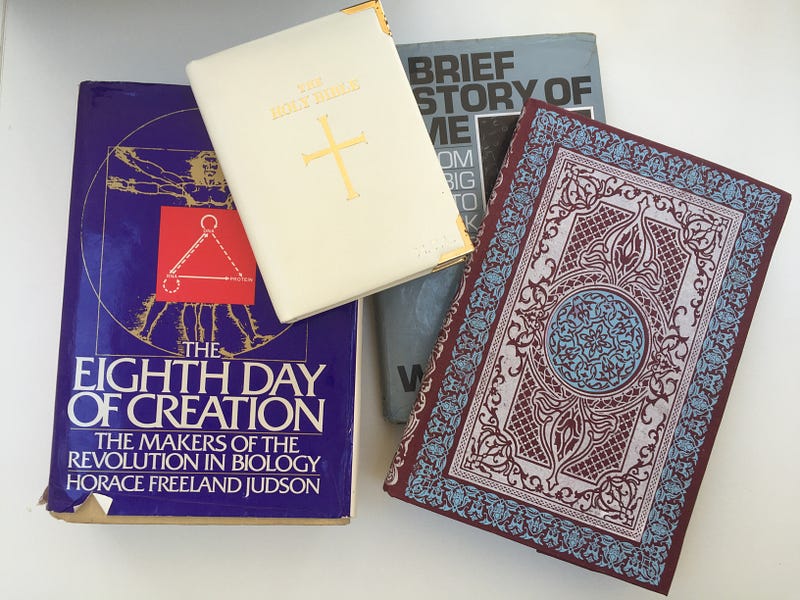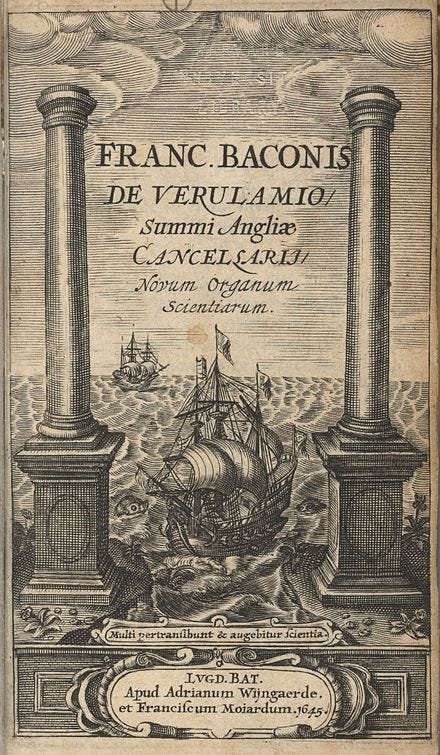Exploring the Intersection of Science and Religious Faith
Written on
Chapter 1: The Duality of Science and Faith
The question of whether one can be both a scientist and a person of faith has intrigued me for years. From a young age, I embraced the role of a scientist, driven by an innate curiosity about the world. Children instinctively explore their surroundings, learning through experimentation. However, as they grow, many encounter faith, leading to a shift in their thinking. Some individuals manage to maintain their scientific rigor while holding onto their religious beliefs.
During my teenage years, I briefly explored Christianity, likely as a rebellion against my father, a nuclear physicist. Ultimately, I struggled to reconcile what I perceived as a conflict between scientific principles and belief in a supernatural deity. This dichotomy puzzled me: how could someone adhere to the scientific method, which relies on consistent rules derived from experimentation, while simultaneously believing in a divine force capable of altering those very rules?
Surrounded by fellow scientists at the university, I engaged in discussions about the apparent tension between faith and science. I anticipated hearing perspectives like deism—where a god initiates the universe but does not interfere—or theistic evolution, which posits that a deity guides the process of evolution. While some colleagues held these views, many others interpreted miracles in their sacred texts literally. This left me questioning: if a deity can intervene in the natural order, how can one trust that the rules governing scientific experiments will remain constant?

Chapter 2: Understanding Faith and Science
At its core, faith represents the conviction that something is true despite a lack of supporting evidence, whereas science relies on the belief that something is likely true based on available evidence. Initially, I believed one had to choose between these opposing sides.
My interest in the philosophy of science led me to explore historical figures like Francis Bacon and his seminal work, Novum Organum, published in 1620. Bacon argued for the principles of experimental science that still guide us today. He championed induction over deduction, emphasizing that true understanding comes from deriving general principles from specific observations.
“There are and can be only two ways of searching into and discovering truth. The one flies from the senses and particulars to the most general axioms... The other derives axioms from the senses and particulars, rising by a gradual and unbroken ascent.”
This foundational shift in thinking prompted me to consider the implications of these methods. Deductive reasoning starts with established premises and deduces conclusions based on them. For instance, if we know that "eggs spoil after their use-by date" and "this egg is past its use-by date," we can conclude that "this egg is spoiled." However, this approach limits our ability to discover new knowledge, as it relies solely on pre-existing truths.
Conversely, inductive reasoning allows us to observe patterns and make predictions about future occurrences. For example, if we notice that the first 11 eggs in a dozen are rotten, we may infer that the 12th egg is also bad. While this method lacks the rigor of deduction, it offers the advantage of generating new knowledge without prior assumptions.

Chapter 3: The Philosophical Dilemma
Inductive reasoning is not exclusive to scientists; it underpins our everyday decision-making processes. For example, when driving, we trust that pressing the brakes will slow the car down, based on past experiences.
However, an inherent challenge to induction was posed by the 18th-century philosopher David Hume, who questioned the justification of this reasoning method. His point raises a critical issue: how can we be certain that induction will continue to hold true? We often justify it by citing its historical reliability—a circular argument that relies on the very principle it seeks to validate.
So, how does this exploration of scientific philosophy relate to my understanding of how individuals can reconcile faith with empirical science? Ultimately, there is no singular explanation for the effectiveness of induction; it simply works. This realization led me to accept that I, too, possess a form of faith—faith in the scientific method. Consequently, I no longer fret over how others balance their religious beliefs with scientific understanding. I discovered that faith and evidence-based beliefs can coexist within my own framework. While this doesn't lead me to believe in a deity, it has deepened my comprehension of religious faith by revealing that I, in my own way, hold a profound belief in my scientific principles.
Science and Religion || Mayim Bialik
In this insightful video, Mayim Bialik explores the relationship between scientific inquiry and religious belief, examining how the two can coexist harmoniously.
A scientific defense of spiritual & religious faith | Tony Jack | TEDxCLE
Tony Jack presents a compelling argument for reconciling science and spirituality, emphasizing how they can complement each other in understanding our existence.